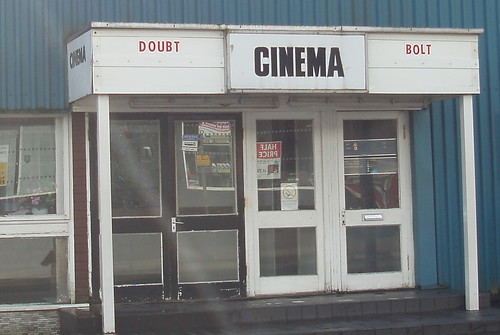
understanding our values, talents and goals and applying them to the pursuit of personal success.
Monday, 28 June 2010
Snakes & Ladders

Tuesday, 6 April 2010
Trust in Your Career

Tuesday, 9 March 2010
Time, Space & Encouragement

Tuesday, 5 January 2010
Moral Support for Your Career
Where does moral support come from?
Morals? Supporters? Both?
Wherever it comes from, moral support makes a big difference.
It gives you a boost
Makes you feel more confident
Lets you know when you’re on the right track
But can we find moral support by ourselves?

Moral support is out there and you can find it in many places.
The people you trust are an excellent external source.
But moral support is also something we can discover for ourselves and our careers.
Exploring what’s important to you, what you are good at and what keeps you going is a source with great potential for moral support.
And you don't have to look too far.
What would you say about moral support?
Where have you found it the past?
Can you live without it?
What difference has it made to your work/life when you’ve had it?
Could you get into the habit of finding it for yourself?
Happy New Year and all the very best for 2010!
Paul
Tuesday, 17 November 2009
Who is That Guy?

Wednesday, 28 October 2009
A Good Career Feeling

Thursday, 22 October 2009
work/life fusion FAQ

Tuesday, 13 October 2009
Certainty, Doubt & Your Career

Tuesday, 15 September 2009
Defining Career Continuity

(New English Dictionary - not the most precise definition in this case)
As the dictionary definitions came thick and fast - OK, in truth there was only really a handful - it became apparent that some of these words had meanings that took on a new relevance and importance within the world of work and careers.
Explorations into our individual relationship with work brought changes so the language people needed to express themselves had to change too.
It's been a while but these changes in work, and in the language used to describe it, have caused me to re-open the dictionary and offer a new word and a new definition today. That word and that subject is, 'Continuity'.
The idea of continuity in careers is definitely changing. Continuity in the past (you might prefer the word stability, or theme, or consistency, or something completely different but I like continuity) was mainly spoken of in terms of employment. "How many years have you been in continuous employment?" is a question you might recognise from questionnaires and forms.
Now and in the future, 'career continuity' can also mean something different. It has taken on a new meaning that goes beyond employment and refers to an individual person and the life-span of their career too.
As you can see below, I have borrowed from the style of a dictionary - Yes, Dictionaries do have style! - to try to expose a little more of this new 'career' dimension behind the word 'continuity'.
Take a look and see what you think...
continuity
noun ( pl. continuities)
1 the unbroken and consistent existence or operation of something over a period of time : you can find a new continuity behind your career choices
• a state of stability and the absence of disruption : your career experiences demonstrate a continuity that goes beyond employment.
• (often continuity between/with) a connection or line of development with no sharp breaks : learning more about your individual relationship with work will help you discover a new sense of career continuity
2 the maintenance of continuous action and self-consistent detail throughout your career
• the linking of career items with a common theme and through all forms of communication (spoken, written, electronic, etc.)
ORIGIN late Middle English : from Old French continuite, from Latin continuitas, from continuare ‘continue,’ from continuus (see continuous).
I'll admit that the above definition only really makes sense if you can experience the difference between a lack of career continuity and possession of it. [or in the absence of possession, an understanding of career continuity at least.]
Without a sense of continuity, there is a good chance that your career can feel lost at times (e.g. if you are out of work for long periods).
With a sense of continuity that stays relevant to your career whether you are in work, out of work or facing anything else, you can never feel lost in the same way.
In other words, the feelings of being lost (or finding yourself in a place where recovery is impossible) aren't as destructive. In fact, if you can find a solid sense of career continuity, a great deal of power is taken away from difficult career situations and given back to you. The main threads and thrusts of your career remain in your hands.
I hope you don't mind this little trip down memory lane with the dictionary. I'd be very keen to hear your opinions on the subject of career continuity, including what your own definition of career continuity might look like!
All the best for now,
Paul
----------------------------------------------------------------
Here are some more dictionary definitions that have appeared on work/life fusion in previous posts:
Wednesday, 1 July 2009
Where would I like to be in 5 years time?


Wednesday, 27 May 2009
Career Heroes
A client asked me yesterday [in my professional capacity as a career coach], “Have you ever struggled with career decisions or had moments of crisis or doubt?”. I replied, “All of the time.”
That was when he laughed.
Actually, we both laughed because it reminded us of past ‘experts’ who showed no weakness in themselves. Those super-men and wonder-women [with brightly coloured capes and underpants worn outside of their tights] who made us feel a little embarrassed for needing their help.
It really is a super-power that super-heroes can make us feel self-conscious when it's them who dress so badly :)

[Bay Bridge Sunset - see more at Saundra's Flickr Photostream here]
A career coach admitting to career issues might sound like a fundamental flaw. Like a seasick sailor, a cowboy with a horse-allergy or an entomologist scared by creepy-crawlies. Sometimes, our career-heroes appear to have a flawless history but appearances can hide a great deal. Sometimes neat packaging is nothing more than that.
In my client’s position, I’d want the truth because it would help me to use better judgement and make better decisions. Much of my work together with this client focused on doubts and testing beliefs. Our relevant personal and professional experiences on both sides could only help.
So what's your opinion?
✪ Of all the pleasure boats in the harbour you might still choose the one with the sickly looking Captain. [He is telling you the sea might be rough. If you decide the trip is still worth it, grab a sick-bag and get on board!]
✪ She might have bloodshot eyes and a runny nose but would you ride home the cattle with anyone else?
✪ Your comments [particularly if you are a successful entomologist with arachnophobia] are welcome!
All the best for now,
Paul